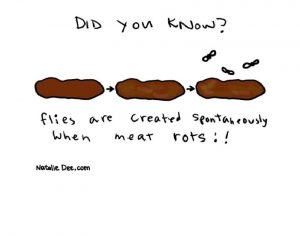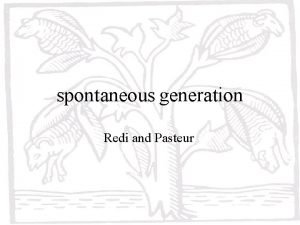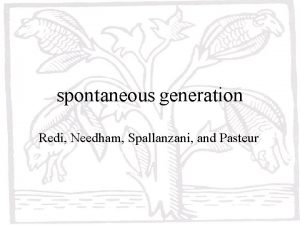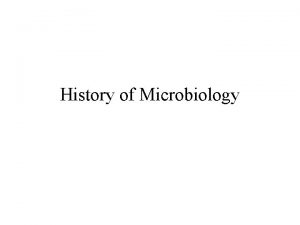POETRY WRITING ALL GOOD POETRY IS THE SPONTANEOUS














- Slides: 14

POETRY WRITING

“ALL GOOD POETRY IS THE SPONTANEOUS OVERFLOW OF POWERFUL FEELINGS. ” -WORDSWORTH

from BRAIDED CREEK By Ted Kooser and Jim Harrison There are mornings when everything brims with promise, even my empty cup. * If you can awaken inside the familiar and discover it strange you need never leave home.

“STOPPING BY WOODS ON A SNOWY EVENING” By Robert Frost Whose woods these are I think I know. His house is in the village though; he will not see me stopping here to watch his woods fill up with snow. My little horse must think it queer to stop without a farmhouse near between the woods and frozen lake the darkest evening of the year. He gives his harness bells a shake to ask if there is some mistake. The only other sound’s the sweep of easy wind and downy flake. The woods are lovely, dark and deep, but I have promises to keep, and miles to go before I sleep.

“The Summer Day” By Mary Oliver Who made the world? Who made the swan, and the black bear? Who made the grasshopper? This grasshopper, I mean- the one who has flung herself out of the grass, the one who is eating sugar out of my hand, who is moving her jaws back and forth instead of up and down - who is gazing around with her enormous and complicated eyes. Now she lifts her pale forearms and thoroughly washes her face. Now she snaps her wings open, and floats away. I don't know exactly what a prayer is. I do know how to pay attention, how to fall down into the grass, how to kneel down in the grass, how to be idle and blessed, how to stroll through the fields, which is what I have been doing all day. Tell me, what else should I have done? Doesn't everything die at last, and too soon?

A POETRY HANDBOOK FROM BY MARY OLIVER


GREEN LIGHT SESSION! Use the rest of this class period to brainstorm your poetry ideas – create a list of everything you think is a possible topic, from your favorite food, to your friends and family, to philosophical ideas, to the setting you are in!

“FAMOUS” BY N AO MI SHI HAB NYE The river is famous to the fish. The loud voice is famous to silence, Which knew it would inherit the earth Before anyone said so. The cat sleeping on the fence is famous to the birds Watching him from the birdhouse. The tear is famous, briefly, to the cheek. The idea you carry close to your bosom Is famous to your bosom. The bent photograph is famous to the one who carries it And not at all famous to the one who is pictured. I want to be famous to shuffling men Who smile while crossing streets, Sticky children in grocery lines, Famous as the one who smiled back. I want to be famous in the way a pulley is famous, Or a buttonhole, not because it did anything spectacular, But because it never forgot what it could do. Naomi Shihab Nye, "Famous" from Words Under the Words: Selected Poems by Naomi Shihab Nye, copyright © 1995. Used with permission of Far Corner Books. The boot is famous to the earth, More famous than the dress shoe, which is famous only to floors.

PROMPT: v Paper should be 3 -5 pages long v Includes a summary of the argument v Includes an evaluation of the argument v Use quotes to support your paper v Strong introductions and conclusions

INTRODUCTIONS: • Don’t start making your argument, but do tell your reader what it is – have a thesis statement! • Long introductions = boring your reader from the beginning • Convince your reader you know what you’re talking about! • Maintain formal style • Don’t include clichéd phrases like “My essay is about…”

CONCLUSIONS: • Don’t restate your thesis statement – but do refer back to it! • Don’t simply summarize • Is there anything else to say to bring your point home? • Answer what you said you would answer – or show that your initial thesis required more nuance/evidence • Maintain formal style • Don’t include clichéd phrases like “In conclusion…” • Include quotes sparingly

There is a lot about the human experience that changes based on place, time, and culture; over the centuries and across the continents people have changed in extraordinary ways. But despite these differences, every person has one approach in common: they look to the past as a source of guidance, to help them make sense of their relationships to family and family history. This idea runs through contemporary literature and beyond, encompassing the stories of people around the world, who are all trying to reconcile the impact of family history on their individual lives… …The three books referenced, Out Stealing Horses, Please Look After Mom, and Opened Ground, all represent different cultures and countries, yet the same idea is manifesting itself in each one. By looking back on the past, by remembering the family relationships that have influenced their lives, people are able to better understand learn from their present circumstances. Though each story provides a unique cultural lens through which to view the story, the central theme of family history as a propellant force remains in each narrative.

Conservation in the modern world is saturated with Romanticism, which has been passed down through the years. Authors such as John Muir helped to implant Romanticism into the modern conservation movement. Today, many people and organizations use aspects of Romanticism to motive people to protect Earth and save species. This purely Romantic motivational argument, however, falls short of being truly effective for the goal of conservation care… …In summary, the ideas of Romanticism have inescapably altered the modern world. After developing an understanding of Romantic ideals, it is impossible to not see these ideas showing up in the modern conservation movement and Western thought in general. But Romanticism’s great influence is a flawed influence. Romantic thinking undermines nature as a whole entity, looking only at the most striking landscapes, ecosystems and organisms. And in our modern world, with excessive amounts of media, even the most sublime scenes with eventually feel overused and commonplace. And as the world changes, arguments should change as well. Romanticism played a huge role in conservation’s past, and it will always play a role in conservation efforts. However, supplementing Romantic thinking with strong moral ideals and the support of a community should achieve greater success for conservation today.
 Poetry is the spontaneous
Poetry is the spontaneous Good thoughts good words good actions
Good thoughts good words good actions Hello good evening hi
Hello good evening hi Good evening good morning good afternoon
Good evening good morning good afternoon Nothing compares to your embrace
Nothing compares to your embrace Tardes buenas tardes
Tardes buenas tardes Name 3 points
Name 3 points Hát kết hợp bộ gõ cơ thể
Hát kết hợp bộ gõ cơ thể Lp html
Lp html Bổ thể
Bổ thể Tỉ lệ cơ thể trẻ em
Tỉ lệ cơ thể trẻ em Gấu đi như thế nào
Gấu đi như thế nào Tư thế worms-breton
Tư thế worms-breton Hát lên người ơi
Hát lên người ơi Các môn thể thao bắt đầu bằng tiếng chạy
Các môn thể thao bắt đầu bằng tiếng chạy



























